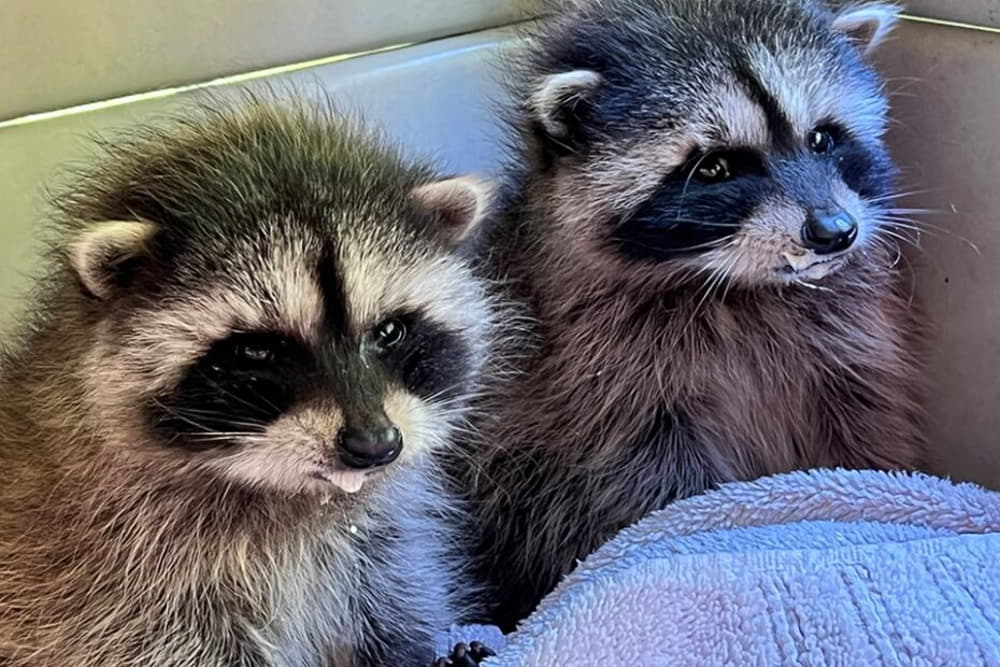Pregnant raccoons, like their non-pregnant counterparts, are primarily nocturnal animals, meaning they are most active during the night. In fact, there are many cases where hunters say they see pregnant raccoons appearing during the day. Is it true? Do pregnant raccoons come out during the day?
It is a frequent misconception that if a raccoon is discovered out and about during the day, it most certainly has rabies or is very sick. Increased hunger or the need to choose a good nesting site for the cubs can influence pregnant raccoons to change their behavior. Additionally, urbanization and human activities can disrupt their natural behavior, causing them to adapt to diurnal patterns.
There is a lot of debate about whether pregnant raccoons go out during the day? For what purpose do they go out? And how to detect if a raccoon has rabies? Let’s learn more about this behavior through the following article.
Table of Contents
Do Pregnant Raccoons Come Out During The Day?
Yes, pregnant raccoons come out during the day. Pregnant raccoons go out during the day for their basic needs, but this is not their preferred time to be active. Here are 3 main reasons why you may see a pregnant raccoon during the day:
- Seeking food
- Nesting and denning
- Avoiding Predators
During this crucial period, pregnant raccoons display remarkable resourcefulness and heightened awareness.
Seeking Food
Raccoon mothers regularly emerge during the day to seek for food. Raccoons, like humans, require more food when pregnant or nursing. As these expectant mothers emphasize appropriate nutrition for their developing children, the search for food becomes more than just a routine activity.
Pregnant raccoons have increased nutritional needs, and they need to forage during the day to meet those needs. Their dietary habits may evolve to include a wider variety of food sources as an adaptive response to the nutritional needs associated with pregnancy. Mother raccoons become more selective in choosing where to find food. They also are more active during the day if they are struggling to find enough food at night.

Nesting And Denning
Pregnant raccoons spend a lot of time preparing their den for the arrival of their young. This action requires gathering materials, such as leaves and twigs, or even moving to a new nesting site. These activities may require them to come out during the day, especially if they are using a den in a tree or on the ground.
Avoiding Predators
Raccoons are preyed upon by a variety of animals, including coyotes, foxes, and birds of prey. Pregnant raccoons may come out during the day to avoid these predators, especially if they feel that their den is not safe enough. They also choose to forage during the day when there are fewer predators around.
Risks Of Daytime Activity For Pregnant Raccoons
Although raccoons may go out during the day for the reasons listed above, there are still risks to this behavior. As nocturnal animals, raccoons are not as well adapted to daytime activity, and they may be more vulnerable to predators. Additionally, pregnant raccoons can become stressed or agitated if they are forced to be active during the day. This could potentially harm their unborn kits.
Read this post: When Is Raccoon Hunting Season?
Are Raccoons More Aggressive During the Day?
By nature, raccoons do not become more aggressive during the day. Raccoon aggression is determined by the situation rather than the time of day. When irritated, cornered, or defending their babies, these creatures can become aggressive. Raccoons’ maternal instincts are very strong, so if they feel there is a threat to their cubs, they can become extremely aggressive. In most cases, raccoons with rabies are also aggressive.
How Do You Know If A Raccoon Has Rabies?
Here are 7 visual indications or symptoms of rabies in raccoons:
- Agitated, disturbed appearance
- Screaming incessantly
- Nervous for unknown reasons.
- Extremely enraged
- Partial paralysis
- Discharge from mouth and eyes
- Self-mutilation or self-biting
However, the same symptoms may also arise in raccoons that do not have rabies but do have other diseases. Raccoons can carry rabies without showing any signs. Rabies is classified into two types: furious and dumb.
A raccoon infected with furious rabies may exhibit unusual characteristics such as unprovoked hostility or appear disoriented. Meanwhile, a raccoon infected with dumb rabies appears tame and kind. Some, but not all, baby raccoons carry infections that you are unaware of. Many of them may be born with infectious disorders passed down from their mother.

